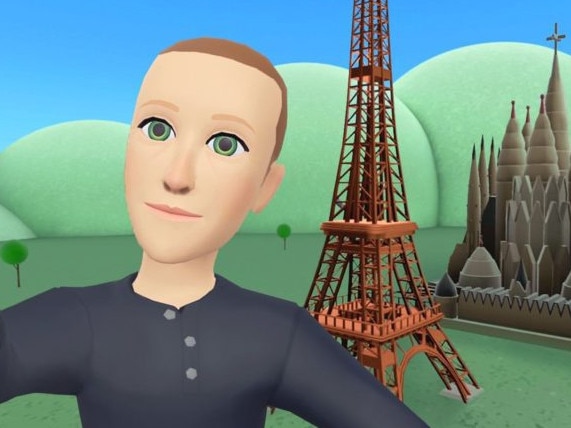Mark Zuckerberg’s virtual world is a ghost town, but is anyone surprised?
Only a weirdo would want to hang out in his virtual playground. So why is the billionaire betting his fortune away?

Marc Andreessen, the billionaire venture capitalist and creator of Netscape, the browser that launched the internet era, once said: “Every failed idea from the dotcom bubble would work now.” He was reflecting on the madness of the 1990s internet mania, when excited twentysomethings predicted we would soon do everything online, from shopping to dating and watching films to ordering groceries. Hundreds of billions of pounds were lost trying to fast-forward to that future. That future, of course, did arrive. We’re living in it. But those who tried to will it into existence before its time lost gravely.
I thought of this as I watched Mark Zuckerberg set his life’s work on fire. The Facebook co-founder has bet his company, his fortune and his reputation on the idea that the metaverse, an immersive world accessed by virtual-reality goggles, is the “next iteration of the internet”. In his view, we will all, of our own volition, spend hours a day with a computer strapped to our faces so we can live as avatars: having meetings, going to comedy clubs and being accosted by virtual weirdos in cyberspace.
Despite all the signs that this is a very bad idea, Zuckerberg is ploughing ahead. The 38-year-old is spending $15bn a year on the project. Company data leaked this month to The Wall Street Journal showed just how big a risk it is. The company’s flagship metaverse product, Horizon Worlds, which is meant to be a universe of virtual spaces, is almost empty. Less than 10 per cent of these worlds are visited by at least 50 people, data showed. Users complained of glitchy graphics and legless avatars. Meta, Facebook’s parent company, recently reduced its goal of 500,000 monthly users by year’s end to 280,000. Most users never return after the first weeks.

Yet last week, when the company revealed a second straight quarter of falling sales and plunging profits, Zuckerberg doubled down. Unlike rival tech giants who have begun slashing jobs, Zuck said there would be no big cuts. Reality Labs, the division bringing his vision to life, reported a $14bn loss so far this year, and predicted that those losses would “grow significantly year-over-year”. Zuckerberg urged investors to keep the faith. “Those who are patient and invest with us will end up being rewarded.”
His intransigence was astounding. In a year, Meta’s stock has lost nearly 70 per cent, taking it back to the levels of 2015, when it was used by 1.4 billion fewer people, had one-seventh the employees and one-seventh the sales. Zuckerberg’s net worth has shrunk by more than $150bn, leaving him with just $60bn. And yet he gave no indication that he would change course or downshift his ambitions, even if it takes a decade for the metaverse to take off.
The investor Brad Gerstner captured the views of many, saying: “An estimated $100 billion investment in an unknown future is super-sized and terrifying, even by Silicon Valley standards.”
It should also be said that this is not an original idea. A company called Linden Lab launched Second Life, an online virtual world, in 2003. Its founder, Philip Rosedale, graced the covers of magazines and predicted that more than a billion people would live a parallel life in the world he created. They didn’t. It is used by a million people today. One tech website dubbed it “Sadville”.
The reason it failed, Rosedale told me, is that real life is compelling. In other words, to convince people to move en masse to a virtual world, the offering must be mind-blowingly good. And Zuckerberg’s metaverse is utterly uncompelling and unpopulated.
Why is he taking such a massive gamble? Despite its challenges, Meta, which includes Facebook, Instagram and WhatsApp, has been one of the greatest cash-generating machines in history. Last year it earned $60b in profits – more than $150 million a day.
The writing, however, is on the wall. The former boy-king of social media is losing relevance. TikTok is stealing young users. The anti-tracking prompts that Apple introduced to its devices, starting from last year, are starving Meta’s ad machine of the detail on which it used to run. Regulators in Britain and America won’t allow Meta to buy even small companies.
So as he loses grip in this world, Zuck’s response has been to try to build a new one where he, once again, can be king. He may be right that the metaverse will supplant the smartphone as the way we communicate, work and play. The history of technology has shown that before something works, countless experiments must first fail. But now, the metaverse is Sadville 2.0 and Zuckerberg is the mayor.
The Sunday Times


To join the conversation, please log in. Don't have an account? Register
Join the conversation, you are commenting as Logout